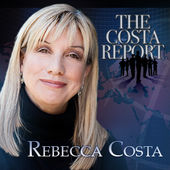CONGRESSWOMAN MARCY KAPTUR SAYS TRANS PACIFIC TRADE AGREEMENT PLAYS FAST AND LOOSE WITH AMERICAN JOBS
The longest-serving woman in the 114th U.S. House of Representatives is worried. Congress had just...
Read Moreby VoiceAmerica | Jul 9, 2015 | Business | 0 |
The longest-serving woman in the 114th U.S. House of Representatives is worried. Congress had just...
Read Moreby VoiceAmerica | Jul 2, 2015 | Business | 0 |
Acclaimed CBS journalist Lesley Stahl has spent her career in journalism unearthing stories that...
Read Moreby VoiceAmerica | Jun 16, 2015 | Business | 0 |
‘The Motor City Madman:’ Mad or Marginalized? by American sociobiologist Rebecca Costa...
Read Moreby VoiceAmerica | Jun 10, 2015 | Business | 0 |
EX-HUD SECRETARY HENRY CISNEROS SAYS URBAN INVESTMENT CRITICAL TO ROBUST ECONOMY by American...
Read Moreby VoiceAmerica | Jun 3, 2015 | Business | 0 |
PUBLISHER LARRY FLYNT TAKES ON THE DEATH PENALTY by American sociobiologist, Rebecca D. Costa...
Read Moreby VoiceAmerica | May 26, 2015 | Business | 0 |
A DREAM TAKES FLIGHT AeroMobil could be lifting off commercially in 2017, says CEO Juraj Vaculik...
Read Moreby VoiceAmerica | May 13, 2015 | Business | 0 |
Former House Intelligence Chair, Mike Rogers, says greatest threat to U.S. is cyber warfare â...
Read Moreby VoiceAmerica | May 7, 2015 | Business | 0 |
Former U.S. Senator, Tom Coburn, who also served in the House of Representatives from 1995 to...
Read Moreby VoiceAmerica | Apr 27, 2015 | Business | 0 |
Former special counsel to President Clinton and acclaimed expert in the field of crisis...
Read Moreby VoiceAmerica | Apr 21, 2015 | Business | 0 |
In 2014, Attorney General, Eric Holder, declared heroin use “an urgent and growing public...
Read Moreby VoiceAmerica | Apr 15, 2015 | Business | 0 |
Most Successful U.S. Negotiator with Terrorist Regimes Absent from Iran Nuclear Negotiations by...
Read Moreby VoiceAmerica | Apr 7, 2015 | Business | 0 |
The Department of Homeland Security Office of Immigration Statistics claims that – as...
Read More


